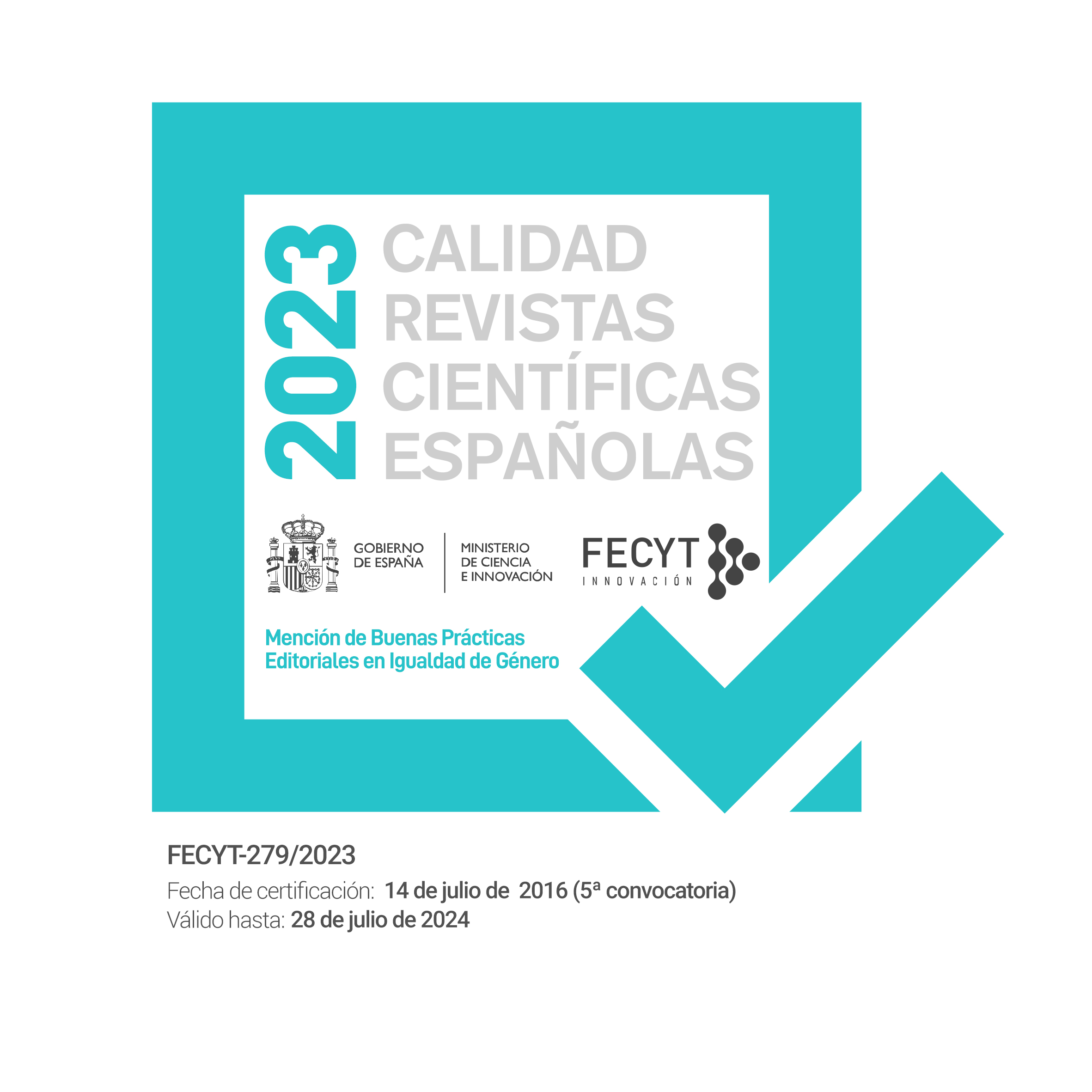Optimization of Time in Classroom Listening Comprehension Tasks
DOI:
https://doi.org/10.26754/ojs_misc/mj.20166833Keywords:
oral comprehension, listening, multiple choice option, fill-in-blanks, advanced level, EFLAbstract
The purpose of this research was to verify the appropriate number of times (1, 2 or 3) that EFL students (B2.1 level) should listen to oral texts for an appropriate comprehension. In addition, we sought to find whether listening comprehension is affected by the type of exercise that participants are asked to respond to: whether a multiple-choice or fill-in-the-blanks option. The research was done with a Pretest/Posttest design and 51 participants. Intra-group comparisons confirmed that there is no significant difference at this level, indicating an equal performance regardless of the treatment (once, twice, or 3 times). This study makes a practical contribution to the teaching field since it establishes the number of times that students at this level should listen to the oral text (once). It was also found that multiple choice option exercises may be more suitable for an assessment of comprehension, an idea that is consistent with the literature which points to recognition exercises (multiple-choice) as being easier than those in which retrieval is involved (fill-in-the-blanks).
Downloads
References
Anderson, John R. and Gordon H. Bower. 1972. “Recognition and retrieval processes in free recall”. Psychological Review 79 (2): 97-123.
Aponte-de-Hanna, Cecilia. 2012. “Listening strategies in the L2 classroom: More practice, less testing”. College Quarterly 15 (1): 1-9.
Bilican, Safiye, Kutlu Ömer and Ozen Yildirim. 2012. “The Factors that predict the frequency of activities developing students’ listening comprehension skills.” Procedia - Social and Behavioral Sciences 46: 5219-5224.
Brown, Gillian and George Yule. 1983: Teaching the Spoken Language. Cambridge: Cambridge University Press.
Buck, Gary. 2001. Assessing Listening. New York: Cambridge University Press.
Carpenter, Shana K. 2012. “Testing enhances the transfer of learning”. Current Directions in Psychological Science 21 (5): 279-283.
Chang, Anna Ching-Shyang and John Read. 2006. “The effects of listening support on the listening performance of EFL learners”. TESOL Quarterly 40 (2): 375-397.
Chang, Anna Ching-Shyang and John Read. 2008. “Reducing listening test anxiety through various forms of listening support”. TESL-EJ. The Electronic Journal for English as a Second Language 12 (1): 1-25. <http://tesl-ej.org/ej45/a1.pdf>.
Council of Europe. 2001. Common European Framework of Reference for Languages: Learning, Teaching, Assessment. Cambridge, U.K.: Press Syndicate of the University of Cambridge.
Cousins, Leigh Pretnar. 2010. “Recognition vs Recall”. Psych Central. <http://blogs.psychcentral.com/always-learning/2010/01/recognition-vsrecall/>. Accessed May 19, 2014.
Flowerdew, John and Lindsay Miller. 2005. Second Language Listening. New York: Cambridge University Press.
Goh, Christine C. M. 2002. “Exploring listening comprehension tactics and their interaction patterns”. System 30 (2): 185-206.
Goh, Christine C. M. and T. Yusnita. 2006. “Metacognitive instruction in listening for young learners”. ELT Journal 60 (3): 22-232.
Guan, Yi. 2014. “The effects of explicit listening strategy instruction on the listening comprehension of English as Second Language (ESL) community college students”. University of San Francisco. Doctoral Dissertations, paper 93.
Haines, Simon, and Barbara Stewart. 2008. First Certificate. Masterclass. Oxford: Oxford University Press.
Hashemzadeh, Mitra. 2012. “The effect of exercise types on EFL learners’ vocabulary retention”. Theory and Practice in Language Studies 2 (8): 1716-1727. DOI: 10.4304/tpls.2.8.1716-1727.
Hogan, Tiffany P., Suzanne M. Adlof and Crystle N. Alonzo. 2014. “On the importance of listening comprehension”. International Journal of Speech Language Pathology 16 (3): 199-207.
Iwai, Yuko 2010. “Re-envisioning reading comprehension for English language learners”. The Internet TESL Journal XVI (4). <http://iteslj.org/> Accessed May 15, 2014.
Kahana, Michael J., Daniel S. Rizzuto and Abraham R. Schneider. 2005. “Theoretical correlations and measured correlations: Relating recognition and recall in four distributed memory models”. Journal of Experimental Psychology: Learning, Memory and Cognition 31 (5): 933-953.
Kurita, Tomoko. 2012. “Issues in second language comprehension and the pedagogical implications”. Accents Asia 5 (1): 30-44.
Kutlu, Ömer and Aslihan Erman Aslanoglu. 2009. “Factors affecting the listening skill”. Procedia - Social and Behavioral Sciences 1: 2013–2022.
Latifi, Mehdi, Manizhe Youhanaee and Elham Mohammadi. 2013. “Simplifying the text or simplifying the task: How to improve listening comprehension”. Porta Linguarum 19: 7-21.
Lynch, Tony. 2006. “Academic listening: Marrying top and down”. In Usó-Juan, Esther and Alicia Martínez-Flor (eds.) Current Trends in the Development and Teaching of the Four Language Skills. Berlin: Mouton de Gruyter: 91-110.
Mehrpour, Saeed and Mohammad Rahimi. 2010. “The impact of general and specific vocabulary knowledge on reading and listening comprehension: A Case of Iranian EFL learners”. System 38 (2): 292-300.
Miller, Lindsay. 2003. “Developing listening skills with authentic materials”. ESL Magazine 6(1), 16-19.
Miller, Lindsay. 2014. “Listening to lecturers in a second language: A Southeast Asian perspective”. The Asian Journal of Applied Linguistics 1 (1): 64-75.
Morley, Joan. 1991. “Listening comprehension in Second/Foreign Language instruction”. In Celce-Murcia, Marianne (ed.) Teaching English as a Second or Foreign Language. Boston: Heinle and Heinle Publishers: 81-106.
Moskovsky, Christo, Guowu Jiang, Alan Libert and Seamus Fagan. 2015. “Bottom-up or topdown: English as a Foreign Language vocabulary instruction for Chinese university students”. Tesol Quarterly 49 (2): 256-277.
Murray, John. 2006. “Pedagogical implications of cognitive science research”. Independent Teacher. <http://www.nais.org/Magazines-Newsletters/ITMagazine/Pages/Pedagogical-Implications-of-Cognitive-Science-Research.aspx> Accessed April 12, 2014.
Nosratinia, Mania, Samira Ghavidel and Alireza Zaker. 2015. “Teaching metacognitive strategies through Anderson’s Model: Does It affect ºTheory and Practice in Language Studies 5 (6): 1233-1243.
Nunan, David and Clarice Lamb. 1996: The Selfdirected Teacher. Cambridge: Cambridge University Press.
O’Malley, J. Michael and Anna Uhl Chamot. 1990. Learning Strategies in Second Language Acquisition. Cambridge: Cambridge University Press.
Osada, Nobuko. 2004. “Listening comprehension research: A brief review of the past thirty years”. Dialogue 3: 53-66.
Peñate Cabrera, Marcos and Plácido Bazo. 2002. “Teaching the four skills in the primary EFL classroom”. The Internet TESL Journal VIII (12). <http://iteslj.org/>.
Rahimi, Mehrak and Maral Katal. 2012. “Metacognitive listening strategies awareness in learning English as a Foreign Language: A comparison between university and high school students”. Procedia - Social and Behavioral Sciences 31: 82-89.
Ratebi, Zahra and Zahra Amirian. 2013. “Use of metacognitive strategies in listening comprehension by Iranian university students majoring in English: A comparison between high and low proficient listeners”. Journal of Studies in Education 3 (1): 141-154.
Richards, Jack C. 1990. The Language Teaching Matrix. Cambridge: Cambridge University Press.
Richards, Jack C. 2008. Teaching Listening and Speaking. From Theory to Practice. New York: Cambridge University Press.
Rost, Michael. 2002. Teaching and Researching Listening. Harlow: Longman.
Rubin, Joan. 1994. “A Review of Second Language listening comprehension research”. The Modern Language Journal 78: 199-221.
Sánchez, María J., Carmen Diego and Ana Alonso. 2010. “Podcasts. Recurso didáctico de mejora en la comprensión oral de la Lengua
Inglesa”. ES. Revista de Filología Inglesa 31: 233-246.
Selamat, Suzanah and Gurnam Kaur Sidhu. 2013. “Enhancing listening comprehension: The role of metacognitive strategy instruction (MetS)”. Procedia-Social and Behavioral Sciences 90: 421-430.
Simkin Simkin, Mark G. and William L. Kuechler. 2005. “Multiple-choice tests and student understanding: What is the connection?” Decision Sciences Journal of Innovative Education 3 (1): 73-97.
Smith, Megan A. and Jeffrey D. Karpicke. 2014. “Retrieval practice with short-answer, multiple- choice, and hybrid Tests”. Memory 22 (7): 784-802. DOI: 10.1080/09658211.2013.831454.
Sonbul, Suhad and Norbert Schmitt. 2010. “Direct teaching of vocabulary after reading: Is it worth the effort?” ELT Journal 64 (3): 253-260. DOI: 10.1093/elt/ccp059.
Vandergrift, Larry. 1999. “Facilitating Second Language listening comprehension: Acquiring successful strategies”. ELT Journal 53 (3): 168-176.
Vandergrift, Larry. 2007. “Recent developments in Second and Foreign Language listening comprehension research”. Language Teaching 40 (3): 191-210.
Zhang, Yan. 2012. “The impact of listening strategy on listening comprehension”. Theory and Practice in Language Studies 2 (3): 625-629.
Downloads
Published
How to Cite
Issue
Section
License
Copyright (c) 2016 Miscelánea: A Journal of English and American Studies

This work is licensed under a Creative Commons Attribution-NonCommercial 4.0 International License.


